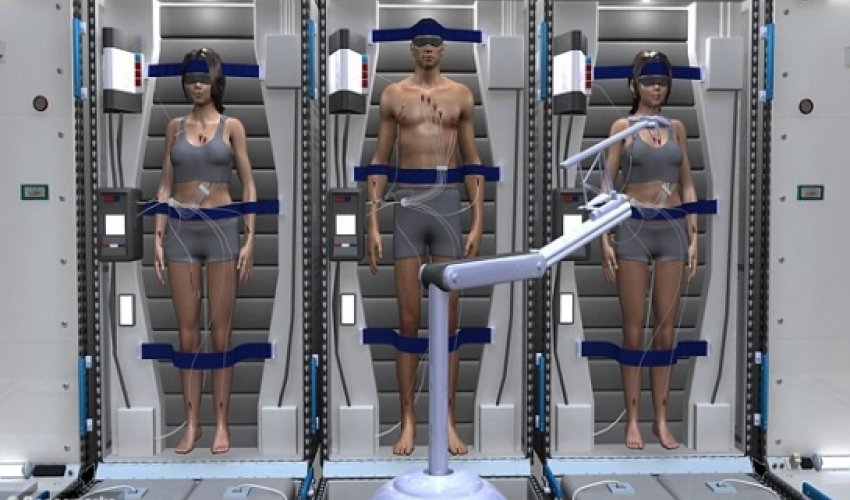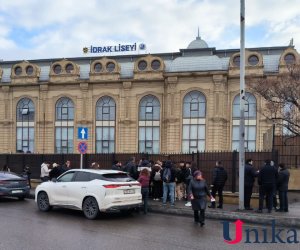Is human HIBERNATION the key to getting to Mars? - VIDEO

The proposal would see a crew ‘hibernate’ for up to 180 days, allowing them to make the journey of 350 million miles (560 million km) with a reduced need for food and water.The crew would be kept alive through intravenous feeding, before being woken at their destination by inhalation of a coolant gas.He explained how astronauts could be put in ‘therapeutic torpor’ - a state of reduced physiological activity - to reduce their needs for the 90- to 180-day mission to Mars.Electrical impulses would stimulate the muscles of the astronauts while hibernating, ensuring that when they woke from their slumber they were not significantly weakened.This would mean that, en route, the crew could be crammed into a smaller area with less cargo, meaning the spacecraft would not have to be as big as those referenced in other proposals.‘Therapeutic torpor has been around, in theory, since the 1980s and really since 2003 it has been a staple for critical care trauma patients in hospitals,’ said Dr Schaffer, reports Discovery News.He added: ‘We haven’t had the need to keep someone in [therapeutic torpor] for longer than seven days.‘For human Mars missions, we need to push that to 90 days, 180 days. 'Those are the types of mission flight times we’re talking about.’Torpor reduces the metabolic needs for a human, essentially placing them in 'hibernation'.To put them in stasis, a system called RhinoChill would be used, which reduces body temperature by about one degree per hour by supplying coolant through the nose. At a temperature of between 32°C (89°F and 93°F), which takes six hours to reach, the crew would enter stasis.Stopping the flow of coolant would then wake the crew when they arrive at their destination.This means that on the journey to Mars, they could be placed in a fairly small capsule.In fact, the study by SpaceWorks suggests it could be five times smaller than a comparable spacecraft in which the astronauts weren't in stasis.And they would need three times less cargo including food and water to survive.In total, this could cut the weight requirements of such a mission from 400 tons to about 220 tons.Upon arriving they would perform the key science of their mission, before being put in stasis again for the journey home.Some proposals suggest the habitat could also spin, providing artificial gravity and reducing bone and muscle loss for the astronauts.An alternative would be to have the crew on hibernation ‘shifts’, with one person staying awake for two or three days before hibernating for 14 days.More research is needed before the proposal is accepted as a viable option by Nasa. In the future, it a crew would go to sleep in Earth orbit - and wake up 180 days later in orbit around the red planet.(dailymail.co.uk)Bakudaily.Az




































 Photo
Photo 



 Video
Video 

